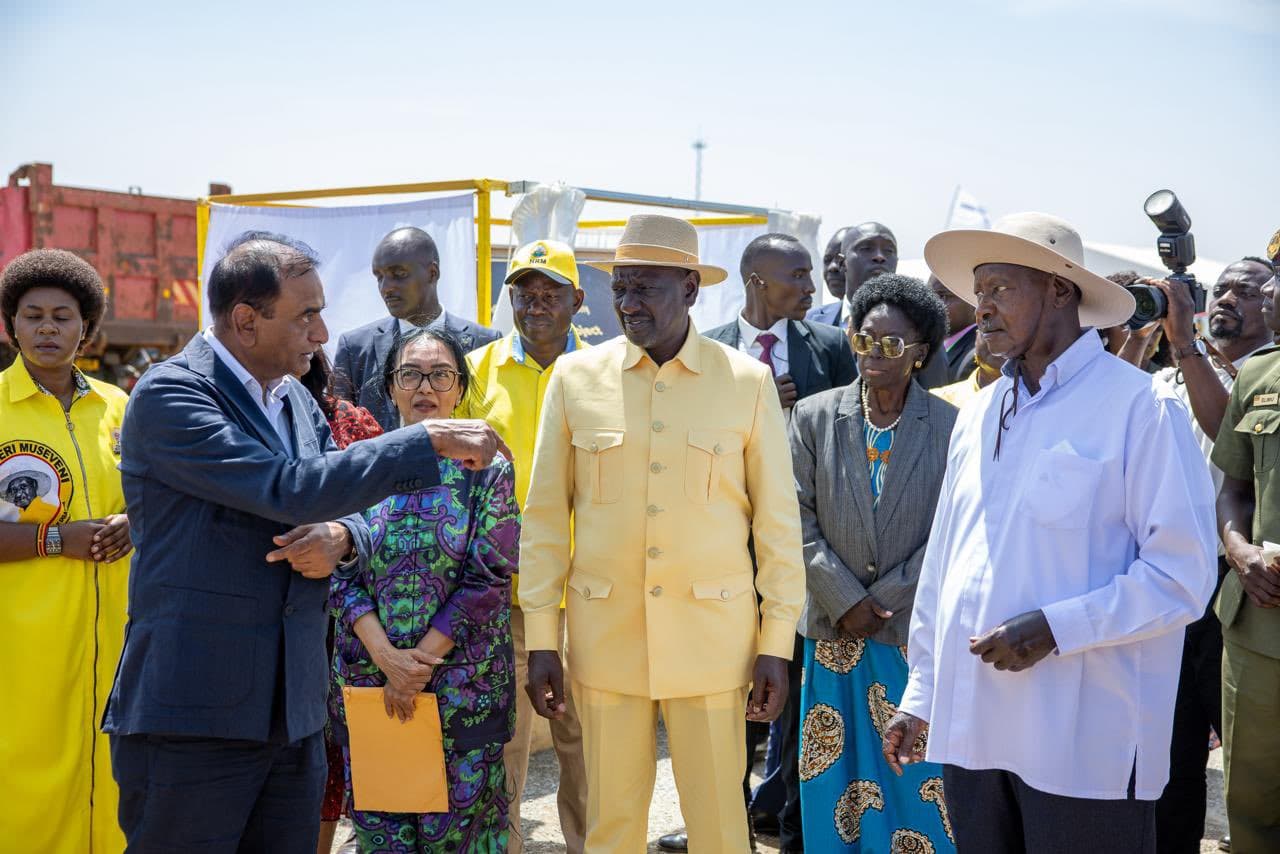We're loading the full news article for you. This includes the article content, images, author information, and related articles.
The new $500 million Devki steel plant in Tororo, Uganda, launched by Presidents Ruto and Museveni, signals a strategic push to slash import reliance, create thousands of jobs, and establish East Africa as a manufacturing powerhouse.

TORORO, UGANDA – In a significant move aimed at reshaping East Africa's industrial landscape, Kenyan President William Ruto and Ugandan President Yoweri Museveni on Sunday, November 23, 2025, presided over the groundbreaking ceremony for a new $500 million (Sh1.7 trillion) steel plant in Tororo, Eastern Uganda. The project, spearheaded by the Kenyan-based Devki Group, is poised to become the largest steel production facility in the region, anchoring a new chapter of economic cooperation between the two nations.
The Devki Mega Steel Project is designed as a vertically integrated facility that will utilize Uganda's substantial iron ore deposits to produce steel for both domestic and regional markets. Speaking at the ceremony in Osukuru County, President Museveni framed the investment as a crucial step in Africa's “economic liberation,” designed to end the long history of exporting raw materials and importing finished goods. "For over 500 years, Africa has been losing value... Today, with the groundbreaking ceremony of the Devki Mega Steel project... we are in the process of liberating Africa," Museveni stated.
President Ruto echoed these sentiments, describing the plant as "a bold new chapter in Africa's industrialisation ambitions" and a testament to the power of regional cooperation within the East African Community (EAC). He emphasized that the project's impact would extend far beyond Uganda's borders, creating integrated value chains that benefit Kenya and the wider region. "This transformative investment will not only serve Uganda but also Kenya, and the region," Ruto remarked.
The Tororo plant is projected to create a substantial number of jobs, though figures vary across initial reports. While some reports state an initial workforce of over 400, Devki Group Chairman Dr. Narendra Raval and Ugandan officials project the creation of up to 15,000 direct jobs in Uganda at commencement, primarily in Tororo and Mbarara. Furthermore, President Ruto noted that Devki's East African operations aim to expand to a total workforce of 20,000 by 2027. The project is also expected to generate vast opportunities for small and medium-sized enterprises (SMEs) in sectors such as transport, energy, and construction through cross-border supply contracts.
This development comes as Africa's demand for steel is projected to surge. According to market analysis cited by President Ruto, the continent's steel market reached 39.5 million tonnes in 2024 and is forecast to grow to 52 million tonnes by 2034, driven by rapid infrastructure development and industrialization. Other market reports project similar growth, estimating the market volume to reach between 51.86 and 53.59 million tonnes by 2034. The new plant, with an expected annual production capacity of one million tonnes, aims to capture a significant portion of this growing demand, reducing the region's reliance on costly imports.
To support this ambitious industrial venture, both leaders announced major joint infrastructure projects intended to deepen economic integration. President Ruto revealed plans to launch the extension of the Standard Gauge Railway (SGR) from Naivasha, Kenya, to Kampala, with further connections to the Democratic Republic of Congo, starting in January 2026. "In January, we will be launching the extension of the SGR from Naivasha to Kampala to connect with the Malaba-Kampala line and later to DRC," he confirmed.
In addition to the railway, the two nations will collaborate on extending the petroleum pipeline from Kenya to Uganda and beyond. As part of this initiative, President Ruto announced that Kenya would divest a 65 percent stake in the Kenya Pipeline Company (KPC) via the Nairobi Securities Exchange, inviting Ugandan public and private entities to invest. These infrastructure projects, along with the dualling of the highway from Rironi to the Malaba border, are critical for creating a seamless and efficient transport corridor to support the new manufacturing hub in Tororo.
The Tororo steel plant represents a strategic convergence of Kenyan capital and Ugandan natural resources, backed by the political will of both governments. Its success is expected to serve as a model for future cross-border industrial projects under the African Continental Free Trade Area (AfCFTA), fostering regional self-sufficiency and positioning East Africa as a competitive player in the global steel market.
Keep the conversation in one place—threads here stay linked to the story and in the forums.
Sign in to start a discussion
Start a conversation about this story and keep it linked here.
Other hot threads
E-sports and Gaming Community in Kenya
Active 9 months ago
The Role of Technology in Modern Agriculture (AgriTech)
Active 9 months ago
Popular Recreational Activities Across Counties
Active 9 months ago
Investing in Youth Sports Development Programs
Active 9 months ago
Key figures and persons of interest featured in this article